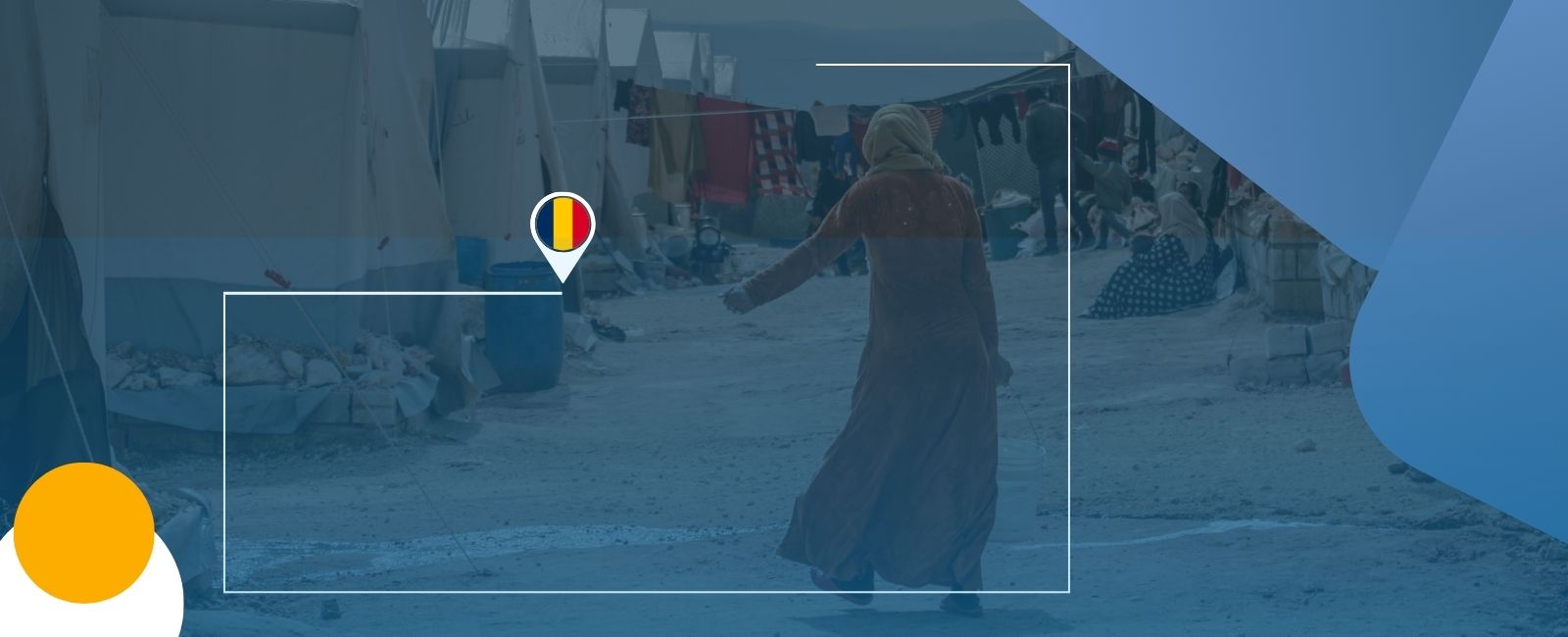

For more than a decade, Chad has provided refuge to thousands of Nigerians fleeing the violence of Boko Haram. In February 2025, a voluntary repatriation agreement enabled some of them to return to Nigeria. However, persistent insecurity has driven many to seek safety once again in Chad, underscoring the ongoing challenges of achieving sustainable reintegration.
Since 2015, Chad has hosted Nigerian refugees fleeing Boko Haram violence in northeastern Nigeria. According to the United Nations High Commissioner for Refugees (UNHCR), approximately 21 974 Nigerian Refugees currently living in Chad, primarily in the Lac province. Many have been there for years, attempting to rebuild their lives far from the conflict they escaped.
On 5 February 2025, a tripartite agreement between Chad, Nigeria and the UNHCR enabled the voluntary repatriation of more than 200 refugees to Nigeria, with the hope of successful reintegration. However, just a few months later, around fifty families returned to Chad, driven back by ongoing insecurity and difficult living conditions in their home country. The most recent group of returnees arrived on May 2, 2025.
A return full of hope… and challenges
On 6 February 2025, more than 200 Nigerian refugees residing in the Dar Es Salam camp in Chad’s Lac Province were repatriated to Nigeria. Most were received at the Gubio camp in Maiduguri. The repatriation was carried out under a tripartite agreement between the Nigerian government, Chadian authorities and the United Nations High Commissioner for Refugees (UNHCR). The agreement promised a “voluntary, dignified and safe” return, with humanitarian support to aid in the refugees’ reintegration.
Three months later, the hope for stability has crumbled. Around fifty of the repatriated families have returned to Chad, citing persistent insecurity, insufficient humanitarian aid, and a lack of livelihood opportunities. In Borno State, continued attacks by Boko Haram and other armed groups have kept fear alive. For many, farming, fishing or simply living in peace remains out of reach.
“We received food and non-food items, but it wasn’t enough. Worse still, we were constantly stressed due to the lack of security. We couldn’t live under those conditions,” said a mother of five who returned to Baga Sola, the capital of Chad’s Lac Province, in early May.
Returning to Chad: a necessity not a choice
According to Bakoura Modou, a representative of the displaced community in the Dar Es Salam camp, the recent returns to Chad were made voluntarily, but out of necessity. “Neither the Chadian state nor any organisation forced these people out,” he said. “They came back because they couldn’t find viable living conditions in Nigeria.”
For some, adapting to life in Maiduguri proved too difficult. The city, unfamiliar and marked by ongoing instability and widespread poverty, offered little comfort. Despite the challenges faced in the Dar Es Salam camp, it provides a measure of stability and safety, alongside a sense of community.
This unexpected wave of returnees has raised serious humanitarian concerns. The Dar Es Salam camp is already overcrowded and under-resourced, struggling to meet the needs of both long-term residents and new arrivals. Meanwhile, humanitarian attention remains focused on the broader crisis unfolding in eastern Chad. Lac Province, which has hosted thousands of Nigerian refugees since 2015, continues to bear the brunt of displacement. As of April 2025, the UNHCR recorded 225 689 internally displaced persons (IDPs) the Lac Province. The partial repatriation in early 2025 was meant to ease this pressure. However, the ongoing instability in Nigeria now calls that strategy into question.
Humanitarian and political dilemma
For Oubadjimdeuba Désiré, coordinator of the Salama Peace Initiative association, “voluntary return is only viable if it is based on a freely made decision and if there are guarantees of security and access to essential services.” In his view, Chad continues to offer refugees a sense of welcome and safety that is often lacking elsewhere. “Here, they can take part in local activities without being stigmatised,” he added.
The return of these refugees to Chad highlights the shortcomings of repatriation efforts that are not backed by solid guarantees. Although many had long dreamed of returning home, they now find themselves once again trying to survive in exile. Their repeated displacement reflects a deeper, ongoing dilemma: the longing to return versus the harsh necessity of fleeing to survive.
Recently Published
Subscribe to our newsletter!
Quick Links


